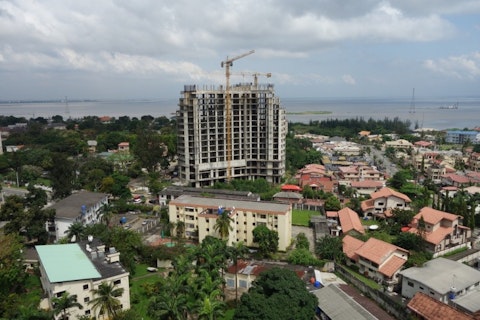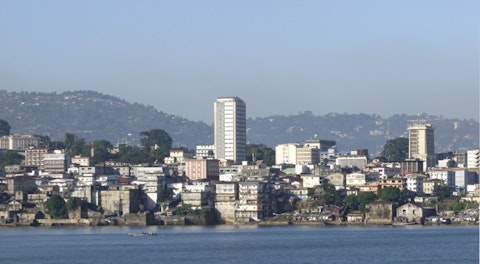Our list of worst countries for disabled travellers will be a great guideline on traveling destinations you should avoid.
It is estimated by WHO’s World Report On Disability that 15% of the world’s population (more than a billion people) live with some form of disability. Out of this number, 110 to 190 million people live with a severe disability. Unfortunately, the number of people with disabilities is growing with each year. Among the reasons for this are the world’s aging population and the increase in chronic diseases that are directly connected with some forms of disabilities. As expected, we see a bigger number of people with disabilities in low income and developing countries than in developed countries. Some reports are also showing that in certain countries, children that belong to ethnic minorities and live in poverty have a high risk of developing a disability compared to other children.

Bill Kret/Shutterstock.com
In the United States, the Americans with Disabilities Act prohibits any discrimination against people with disabilities in any way. Also, there are multiple other positive examples that show real intention to guarantee equal rights to disabled persons. Unfortunately, there are numerous challenges that disabled persons face in their efforts to be treated equally. For example, there are lots of misconceptions and negative attitudes towards them that are surprisingly common in the developed countries. There are fears (mostly unfounded) that people with disabilities are not productive enough and they will not produce satisfying results as employees, students, etc. Other problems include lack of access to services like healthcare and rehabilitation. These are all challenges disabled persons face when they are in their native country, but what are the challenges when they travel abroad?
There are quite many of them, we are afraid. Traveling in an unknown territory is hard enough, but for people with disabilities, it can get much harder. This is why experts advise that you plan ahead and pay great attention to details. You can find numerous opportunities for people with disabilities to experience certain tourist attractions with the help of traveling organizations and tourist guides specialized in making trips accessible for disabled travellers. Also, many hotels and hotels offer accommodations suited for people with disability, so you just need to look around more carefully. Traveling doesn’t have to be hard if you do your part correctly. In case you rely on using credit cards, check out our list of the 11 Worst Countries for Credit Card Fraud to know where to be extra careful.
Now, you are probably wondering how we created our list of worst countries for disabled travellers. Since there is no definitive ranking, we designed a methodology that will give us a good idea. We used the Global Travel and Tourism report made by World Economic Forum that ranked 136 countries of the world based on multiple criteria connected to tourism and travel. For our list, we used the rankings for safety and security, health and hygiene, air transport infrastructure, ground and port infrastructure and tourist service infrastructure. Safety and security ranking is based on the reliability of police service, homicide rates and index of terrorism incidence among others while health and hygiene ranking is based on physicians per capita density, a number of hospital beds and other indicators like access to improved sanitations and drinking water. The 20 worst ranked countries received points from 1 to 20 for each ranking, with points then being combined into our IM Score. Bigger score meant higher ranking on the list. The majority of information about the accessibility assistance is taken from the U.S. Department of State. Let’s now get on with the list of worst countries for disabled travellers .
11. Burundi
IM Score: 34
Rankings
Safety and Security: 111
Health and Hygiene: 111
Air Transport Infrastructure: 130
Ground and Port Infrastructure: 115
Tourist Service Infrastructure: 136
U.S. Department of State reveals that access to transportation is very limited in the country. Also, sidewalks are almost non-existent and elevators are a novelty. The general recommendation is to avoid traveling to Burundi due to political tensions, and possible civil unrests.

Christopher Morley-Pegge/Shutterstock.com
10. Mauritania
IM Score: 34
Rankings
Safety and Security: 112
Health and Hygiene: 114
Air Transport Infrastructure: 129
Ground and Port Infrastructure: 133
Tourist Service Infrastructure: 120
Just like In Burundi, Mauritania doesn’t provide accessibility for people with disabilities. Besides the lack of sidewalks and paved roads, finding a suitable accommodation is also a major issue.

Wead/Shutterstock.com
9. Mali
IM Score: 36
Rankings
Safety and Security: 124
Health and Hygiene: 133
Air Transport Infrastructure: 125
Ground and Port Infrastructure: 119
Tourist Service Infrastructure: 115
According to our source, there is no law in the country that protects the disabled persons. That’s why it’s on our list of worst countries for disabled travellers. There is no special accommodation available, and access to tourist attractions is mostly challenging for people with disabilities. The government of the U.S. has issued a warning, recommending U.S. citizens to avoid traveling to Mali due to the possibility of terroristic attacks and other safety concerns.

Quick Shot / Shutterstock.com
8. Benin
IM Score: 38
Rankings
Safety and Security: 83
Health and Hygiene: 126
Air Transport Infrastructure: 126
Ground and Port Infrastructure: 114
Tourist Service Infrastructure: 121
Although you will be rather safe in Benin (there aren’t even government travel warnings), the infrastructure still represents a big issue. The people using wheelchairs will find that accessibility options are extremely limited. The sidewalks are rare, and even when they exist, their condition is very poor.

Anton_Ivanov/Shutterstock.com
7. Nigeria
IM Score: 41
Rankings
Safety and Security: 132
Health and Hygiene: 132
Air Transport Infrastructure: 108
Ground and Port Infrastructure: 126
Tourist Service Infrastructure: 108
Like in previous entries on our list of worst countries for disabled travellers, Nigeria offers extremely low accessibility options for disabled people with accommodation being a big issue. The government recommends U.S. citizens to avoid traveling to Nigeria (especially the northeast part of the country) due to the unpredictable safety situation. Also, although the doctors are well trained, the medications in Nigeria are hard to come by.

Bill Kret/Shutterstock.com
6. Malawi
IM Score: 46
Rankings
Safety and Security: 74
Health and Hygiene: 123
Air Transport Infrastructure: 135
Ground and Port Infrastructure: 127
Tourist Service Infrastructure: 126
Malawi is another safe country (although there is a possibility of political unrests), but one that is placed low in all other rankings. Medical facilities are described as rudimentary, medications are rarely available and the water is contaminated. Surprisingly, some modern buildings have wheelchair access and there is an act that prohibits discrimination of disabled persons, but it is pointed out that the government of Malawi still lacks the plan and the tools for its implementation.

Pixabay / Public Domain
5. Lesotho
IM Score: 48
Rankings
Safety and Security: 71
Health and Hygiene: 124
Air Transport Infrastructure: 136
Ground and Port Infrastructure: 134
Tourist Service Infrastructure: 118
We are now counting down the top 5 worst countries for disabled travellers. Although Lesotho did make an effort with the Buildings Control Act of 1995 that supposed to make all buildings accessible, its enforcement was almost nonexistent. Besides this act, there isn’t anything else that would make us believe Lesotho is a fitting destination for any disabled traveler.

Copyright: demerzel21 / 123RF Stock Photo
4. Sierra Leone
IM Score: 57
Rankings
Safety and Security: 90
Health and Hygiene: 135
Air Transport Infrastructure: 134
Ground and Port Infrastructure: 118
Tourist Service Infrastructure: 135
As you can see, Sierra Leone has some serious problems with infrastructure, so it isn’t strange to find out that there are no acts or regulations which would regulate accessibility options for disabled persons. Also, there are no government initiated programs or policies that would provide assistance to people with disabilities. Health and hygiene are at extremely low level and even the basic medical care is hard to get.

LEONARDO VITI/Shutterstock.com
3. Yemen
IM Score: 59
Rankings
Safety and Security: 135
Health and Hygiene: 110
Air Transport Infrastructure: 133
Ground and Port Infrastructure: 129
Tourist Service Infrastructure: 127
If you disregard the fact that accessibility options for disabled persons are very limited, safety should be the main reason for which you shouldn’t travel to Yemen. The U.S. Department of State reports that U.S. citizens are targeted by armed groups and detained systematically simply because of their citizenship. If you don’t want to get into the world of trouble, just skip Yemen and go to Hawaii. Now, let’s se the top two among the worst countries for disabled travellers .

javarman/Shutterstock.com
2. Chad
IM Score: 64
Rankings
Safety and Security: 122
Health and Hygiene: 127
Air Transport Infrastructure: 132
Ground and Port Infrastructure: 131
Tourist Service Infrastructure: 132
As expected, the majority of buildings in Chad don’t have elevators and access to them is extremely limited. Also, accessing the transportation and public institutions will pose a great challenge. The U.S. Department of State issued a warning to U.S. citizens recommending them not to travel to Chad and noted that safety situation is very unpredictable.

Angela N Perryman/Shutterstock.com
1. The Democratic Republic of the Congo
IM Score: 64
Rankings
Safety and Security: 117
Health and Hygiene: 129
Air Transport Infrastructure: 128
Ground and Port Infrastructure: 136
Tourist Service Infrastructure: 134
Here we are, at the end of our list of worst countries for disabled travellers . The Democratic Republic of the Congo lacks the proper infrastructure, safety situation is questionable and on top of that, medical facilities are labeled as being severely limited. As a disabled person, you won’t be able to find a suitable accommodation, the access to transportation will be limited and as you can expect, sidewalks are a rare occurrence. So there you have it, now you know where not to travel. Luckily, there are numerous other destinations where your disability won’t be an issue and where you can enjoy.

Alexandra Tyukavina/Shutterstock.com





